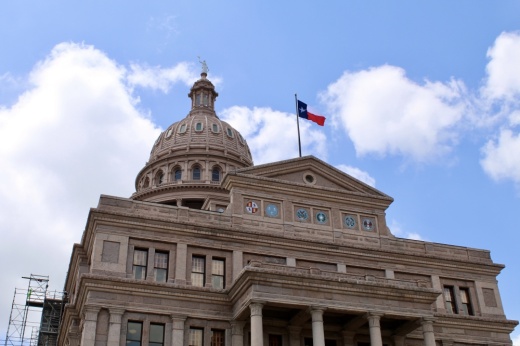In a shift from the Senate’s version of the legislation, the House State Affairs Committee removed direct references to drag shows and performers from Senate Bill 12. The original bill stated that “a male performer exhibiting as a female, or a female performer exhibiting as a male” would be considered sexual conduct.
The latest version of the measure prohibits sexually oriented performances on public property or in the presence of anyone under the age of 18. Sexually oriented performances could include nudity, sexual touching, and “actual or simulated ... vaginal sex, anal sex and masturbation.”
“There is a growing trend to expose children more and more to sexual content,” Rep. Matt Shaheen, R-Plano, said. “ ... My intent is to protect children from being exposed to excessive sexual content.”
Under the bill, businesses that host sexually oriented performances in front of children would face up to $10,000 in fines. Performers could be charged with a Class A misdemeanor, which includes up to one year in jail, a $4,000 fine or both.
Although the latest version of the proposal does not mention drag performers, some LGBTQ+ advocates are concerned that drag could still be criminalized if SB 12 becomes law.
“Today the Texas House passed SB 12, originally designed to explicitly target drag performances and now worded vaguely enough to give officials the power to target any performance they don't like,” said Ash Hall, the policy and advocacy strategist for the American Civil Liberties Union of Texas. “... It disproportionately affects the LGBTQ+ community and especially its BIPOC [Black, Indigenous and people of color] members, who have historically been targeted by state officials and law enforcement.”
The House passed SB 12 with a 93-45 vote on May 22. During a previous vote on May 19, lawmakers advanced the bill with an 88-12 vote, while 42 representatives were marked as “present” instead of voting for or against the bill.
“We acknowledge and approve the removal of the bill’s language that would have banned drag performances under certain circumstances,” the Texas House LGBTQ Caucus said in a statement. “We support caucus members voting their district on the bill, including marking themselves as present, not voting.”
Nearly all “present” votes on the bill were from Democrats.
The measure will now return to the Senate, which can choose to accept or reject the changes. The bill’s author, Sen. Brian Hughes, R-Mineola, stood behind language referencing drag performers when the Senate debated the proposal in April.
“To ensure that directly anti-LGBTQIA+ and anti-drag language is not reinserted into the bill, we will continue to monitor SB 12’s movement through the Texas Legislature and its implementation if the Governor signs it into law,” the House LGBTQ Caucus said.





